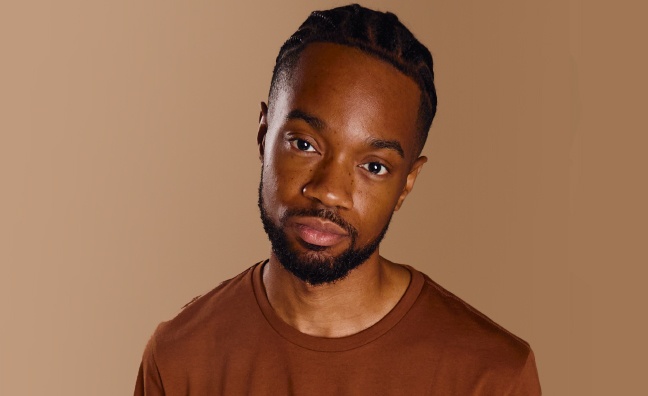Since it formed back in 2020, the Black Music Coalition has played a pivotal role not only in addressing anti-Black systemic racism in the industry, but also in uplifting and celebrating members of the Black music community with its annual Excellence Honourees list. Here, we meet one of its latest recipients, Spotify UK and Ireland’s senior editor Joel Borquaye…
How did you react when you found out you were being honoured by the BMC?
“It was a really nice surprise. It’s easy to forget when you’re working hard to stop and reflect. I’m very grateful for the recognition. The BMC’s made a huge impact on me personally and created a safe space for me to connect and speak to professionals with wellbeing being the topic, rather than music. Some of the advice I have received from [co-founders] Afryea Henry-Fontaine and Komali Scott-Jones over the last few years has been very impactful. They’ve also made huge stamps on key moments, especially when it comes to their infamous Carnival party…”
What principles define your work?
“My ethos is to support talent and assist with the unlocking of their potential, whether that be younger execs or artists and creatives. I love looking at ways I can help amplify awareness of amazing music and artists, as well as play a supportive role in the background. The principles that define my work are good music, supporting the underdog and travel. I say underdogs because recognising talent not everyone may be able to see or understand yet takes a certain level of dedication and nuance to be able to translate it to a mass audience. But when it is translated, it’s very rewarding. Seeing Little Simz on the Pyramid Stage was such an incredible experience and a reminder she was once the underdog herself. Similarly, we honoured Keisha from the Sugababes in 2021 in a campaign called Flowers, aiming to amplify artists who don’t always get the recognition they deserve. Fast forward a few years, I’m now at two failed attempts trying to see the Sugababes at Glastonbury because their sets have been at capacity!”
You’ve done lots of work with young Black artists at Spotify – what support do they need to make it in the industry?
“On the music side, artist development. The speed at which an artist can gain traction means they can grow a fanbase really quickly and the expectations are on them to constantly deliver, so having a team that prioritises their musical development can really help support their growth. This could be in the form of more sessions in professional studios with engineers and producers they can learn from as well as collaborate with, and rehearsals and creative direction for live performances so they are set up to win. Mentorship is also key, especially for new managers and artists who would benefit from relationships with more experienced managers and execs. I would also say access to mental health and financial support. Dealing with social media can be really difficult for artists as it’s a tool many have to use, regardless of whether they enjoy it or not. Financial literacy is something a lot of people didn’t learn in school, so for young artists, it can really help them understand the industry.”

You’ve also been close to lots of breakthrough success stories. Just how strong is UK Black music at the moment?
“Music from Black creators is super strong as they are showing up in every genre space and reclaiming music a lot of people have forgotten has Black foundations. Sometimes we group Black music into one audience space but that isn’t how consumers listen to music nor is it how artists like to create. I would love to see the industry be more intentional with where they are positioning Black artists. Seeing Myles Smith kill his set at [Radio 1’s] Big Weekend, Griff at Wembley or stumbling across Alt Blk Era on a packed stage at Glastonbury in the early hours are great examples of what happens when we market music based on our ears and not our eyes.”
Finally, what campaigns have caught your eye lately?
“Shamelessly, I would say Spotify’s Riffs & Runs campaign where we celebrated UK R&B. We saw 20,000-plus followers to the playlist post-campaign and a 540% increase in streams across the tracks in the list. Another campaign that I found amazing – and to be honest, I love every campaign they do – is Corteiz’s Da Great Denim Exchange. Their synergy with music has made them super-influential in the artist community. They are not only a brand I look to for fashion and style, but to be put on to new music and artists like Dexter, Jim Legxacy, Rushy and 4AM Kru.”












